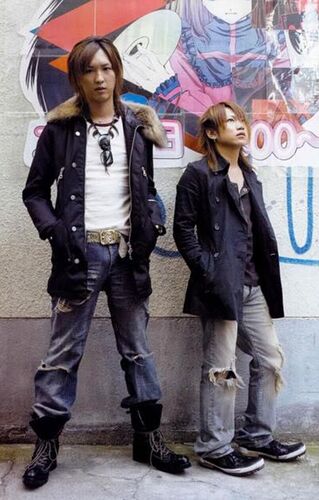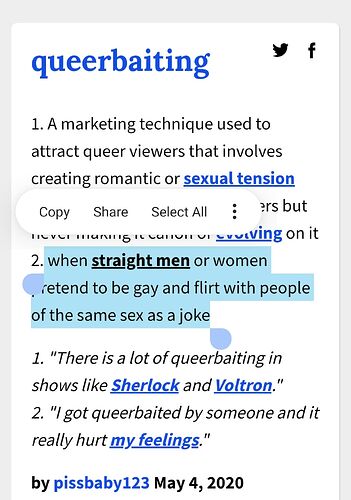Very well put, both above  If you have spent any significant amount of time learning about Japan as a society and vkei as a scene within it, it really should not come as a shock that your average bandman is likely to have much more conservative views than your average liberal in the western world.
If you have spent any significant amount of time learning about Japan as a society and vkei as a scene within it, it really should not come as a shock that your average bandman is likely to have much more conservative views than your average liberal in the western world.
However, I think leaving it at that is also a bit too simplistic. Japan is a conservative and highly homogenous society and scenes like vkei exist as a kind of counter to that. I am careful here to avoid calling it a “subculture” or “counter culture” because it is not really equivalent to the punk or goth movements here in the west. But it is something outside the norm and people who find it hard to conform to societal expectations (for whatever reason) will be drawn to it, either as a performer or a fan. It is not explicitly a LGBTQ+ space (despite what the fanservice might make you think) but I would argue that it is to an extent a queer space. A space where you can experiment and express yourself more freely than elsewhere with no questions asked.
So while vkei is absolutely not the LGBTQ+ haven some western fans seem to think, there are still queer people in it. Not all of them are out, and not all of them even know it themselves, but I am sure there are way more than the few who are open about it. It is not too difficult to find queer themes in the art either, even if they are not explicitly about homosexual relationships.
This gets more into speculation but to me it seems that Kyo (deg) for example has really been through it in terms of self-exploration. The viceral hatered he had for anything feminine and gay in the late 00’s to then produce some absolutely beautiful queer art in the more recent years. I do not wish to speculate on his sexuality here but whatever he went through and whatever he discovered on the way, I do think that the vkei scene was absolutely vital for him to have a space to express it through his art.
There is also a tendency for many (often young and/or new) fans to question whether onnagata bandmen are some flavour of trans or queer and for older fans to scoff that they should not apply western ideas of queerness here. They will, with conviction, say that the dress is just a costume and for the most part they are likely right.
However, I feel like that is also too simplistic. Sometimes a cigar is just a cigar but for others those costumes do also offer a way to express themselves in ways they would not otherwise have had. They might not ever admit it, maybe not even to themselves, but it is there nevertheless. Someone as dedicated to the bit as Hizaki for example might not be doing it purely because. In fact I think I heard somewhere recently that he had confirmed as much.
Then there are the separate but somewhat connected scenes like Tokyo Decadance, which is very explicitly a queer space. Not all vkei bandmen ever interact with it ofc but there are many that do. And while that absolutely does not tell us anything definitive about the bandmen who do interract or even their political leanings, it is also probably not completely meaningless.
I suppose I, being queer myself, might be reading too much into it but I honestly think there is nuance to this that often gets overlooked in these conversations. Queerness is not just being openly homosexual, it is a wider spectrum. It is nonconformity, rebellion and self-expression outside the norm. It is by its very nature undefined, something that exists in the liminal space between the self and the society. And vkei is a space that welcomes those qualities, to varying extents.
Yes, on the face of it it is just a costume, just a performance, just fanservice. But it is also art and art is fundamentally about self-expression. I really think the longer you keep immersing yourself in it, the more likely you are to think of these things a little more deeply. There is only so long you can keep kissing other men on stage before you have to think it through 
That is not to say that anyone who has been in the scene for a longer time and still does fanservice or wears dresses should he presumed queer. But I do think that for the most part they have had to confront the queerness at some point and make some sort of peace with it, regardless of their sexuality or gender identity.
Edit// I took so long writing an essay that someone posted before me  “both above” refers to Rena and Zeus here)
“both above” refers to Rena and Zeus here)
Edit 2// Now that I have also read the post above, I have to say I absolutely agree with this:
I contemplated mentioning this myself but I am really not too knowledgeable about LGBTQ+ culture in Japan so I decided to leave it but I am glad @rsm_rain brought it up.

